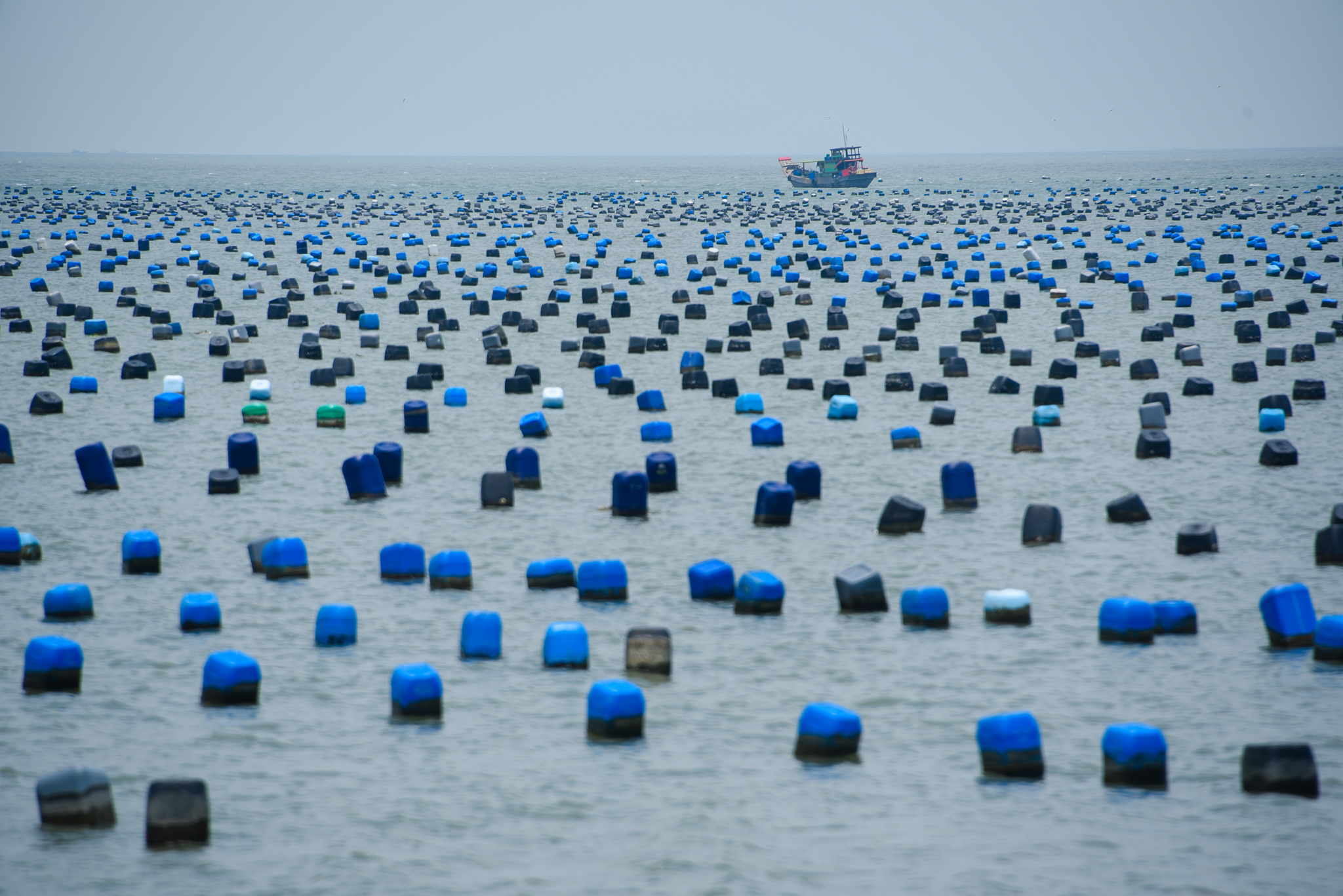Addressing Plastic Pollution in the Agricultural Sector
May 31, 2023

Ha Noi, 31/5/2023 – The Ministry of Agriculture and Rural Development (MARD), in collaboration with the National Plastic Action Partnership (NPAP), UNDP Viet Nam and Viet Nam Circular Economy Hub, chaired a discussion aimed at promoting effective solutions for reducing plastic waste in agriculture. The focus was on piloting models to address plastic waste challenges across three key areas: cultivation, animal husbandry, and fisheries. This is one of the key events of the Agriculture and Rural Development sector in response to the 45th anniversary of World Environment Day in 2023 held under the theme “Solutions to Plastic Pollution”.
Agriculture plays a vital role in Viet Nam’s economy. According to the Viet Nam Final Report in Agriculture in 2022 issued by MARD, the export turnover of the sector reached over 53.22 billion USD with a rapid growth rate across specific areas, from agriculture, forestry, and animal husbandry to aquaculture. However, while agricultural production contributes significantly to national food security, livelihood stability, and social well-being, it also generates plastic waste. Annually, total solid litter (including plastic waste) generated is about 661.50 thousand tonnes (including 550 thousand tonnes of nylon, 77.49 thousand tonnes of fertilizer packaging, and 33.98 thousand tonnes of pesticide packaging) in cultivation; approximately 67.93 million tonnes (including 77 thousand tonnes of animal food packaging) in animal husbandry; and roughly 880 thousand tonnes of sludges and 273 thousand tons of food packaging, veterinary medicine shells and other solids in aquaculture.
Addressing workshop participants, Vice Minister of Agriculture and Rural Development Mr. Phung Duc Tien spoke about the objectives “Today's workshop brings a valuable opportunity for central and local management agencies, organizations, and individuals to discuss and share best practices of actionable solutions for systematically reducing plastic waste in agriculture. Also, it helps to leverage resources from multiple stakeholders to make a significant transformation in production actions towards the development of responsible, modern, efficient, and sustainable agricultural production, as well as circular agriculture that is environmentally friendly and adaptable to climate change”.
The workshop showcased a number of practical and effective solutions that have been successfully implemented in various localities focusing on plastic waste collection, segregation, reuse, and recycling, as well as reducing plastic consumption in agricultural activities. For example, participants learned about a plastic waste collection model of fishing boats linked with the Material Recover Facility (MRF) in Quy Nhon (Binh Dinh province), funded by UNDP Viet Nam and the Royal Norwegian Embassy in Viet Nam. It is establishing a working group of boat fishermen to collect plastic waste, thereby reducing marine litter and generating employment opportunities while adding value to recyclable plastics. Another example is converting foam buoys into floating materials used in aquaculture, following the standard QCDP 08:202/QN in Quang Ninh province. This initiative aims to help replace single-use and difficult-to-collect and non-reusable plastic materials with recycled ones that are environmentally friendly and easy to collect.
To successfully implement the two key National Plans for plastic reduction in Agriculture and Fisheries, UNDP Resident Representative in Viet Nam, Ms. Ramla Khalidi laid out four recommendations “Firstly, accelerate effective implementation of the national plans. Secondly, build up baseline data on plastic waste and plastic pollution and effective national and provincial monitoring systems to measure progress on reducing plastic waste in agriculture. Thirdly, promote effective models for waste collection and recycling, and the use of alternative packaging materials to replace single-use plastics in farming. And finally, educate farmers and agricultural stakeholders about the environmental impacts of plastic and the availability of alternative solutions".
The event welcomed government leaders and representatives from various departments within the agriculture sector, from the center to provincial level of 63 cities and provinces, and distinguished guests from international organizations, enterprises, associations, and academia working in related fields.
----
Information for editor:
UNDP’s support in combating plastic waste in Viet Nam
The United Nations Development Programme is one of the active organizations in reducing ocean plastic waste. Since 2021, the Plastic Pollution Reduction Innovation Challenges (EPPIC) have focused on finding creative solutions to solve the problem of plastic waste in ASEAN countries. In 2020, UNDP implemented the project “Scaling Up a Socialised Model of Domestic Waste and Plastic Management in 5 Cities” (DW5PC) in coastal cities of Viet Nam. From 2021, UNDP is implementing Phase 2 of the DW5PC project named as “Scaling-up integrated and inclusive waste management models through empowering the informal sector and fostering the circular economy”.
National Plastic Action Partnership (NPAP)
The Viet Nam National Plastic Action Partnership (NPAP) hosted by UNDP Viet Nam is a nationally led multi-stakeholder platform that enables collaboration between the government and other vital partners to turn plastic waste and pollution commitments into actions. NPAP’s orientation is positively promoting innovation and financing, informing policy, and developing social inclusivity to support implementation of the national targets in addressing plastic waste and plastic pollution, shaping a more sustainable circular economy in Viet Nam.
Viet Nam Circular Economy Hub (CE Hub)
Viet Nam Circular Economy Hub, established based on the public-private partnership, aims to facilitate dialogues among stakeholders, widening knowledge and insights through selecting and disseminating studies from practical with the best-fit models in sectors, including agriculture. The CE Hub also mobilizes collective efforts for the transition into the circular economy of Viet Nam. The Viet Nam Circular Economy Hub was regulated in Decree No. 08/2022/ND-CP elaborating several articles of the Law on Environmental Protection (Article 139).
For media inquiries or more information, please kindly contact:
UNDP Viet Nam
Ms. Phan Huong Giang
UNDP Media and Communications Analyst,
Climate Change and Environment
Email: phan.huong.giang@undp.org
Website: https://www.undp.org/vietnam
Mob: +84 94 84 66688
MARD’s Department of Science, Technology and Environment
Ms. Nguyen Thi Hong Thanh
Senior specialist
Email: thanhnth.khcn@mard.gov.vn
Website: https://www.mard.gov.vn
Mob: +84 983228889

 Locations
Locations



